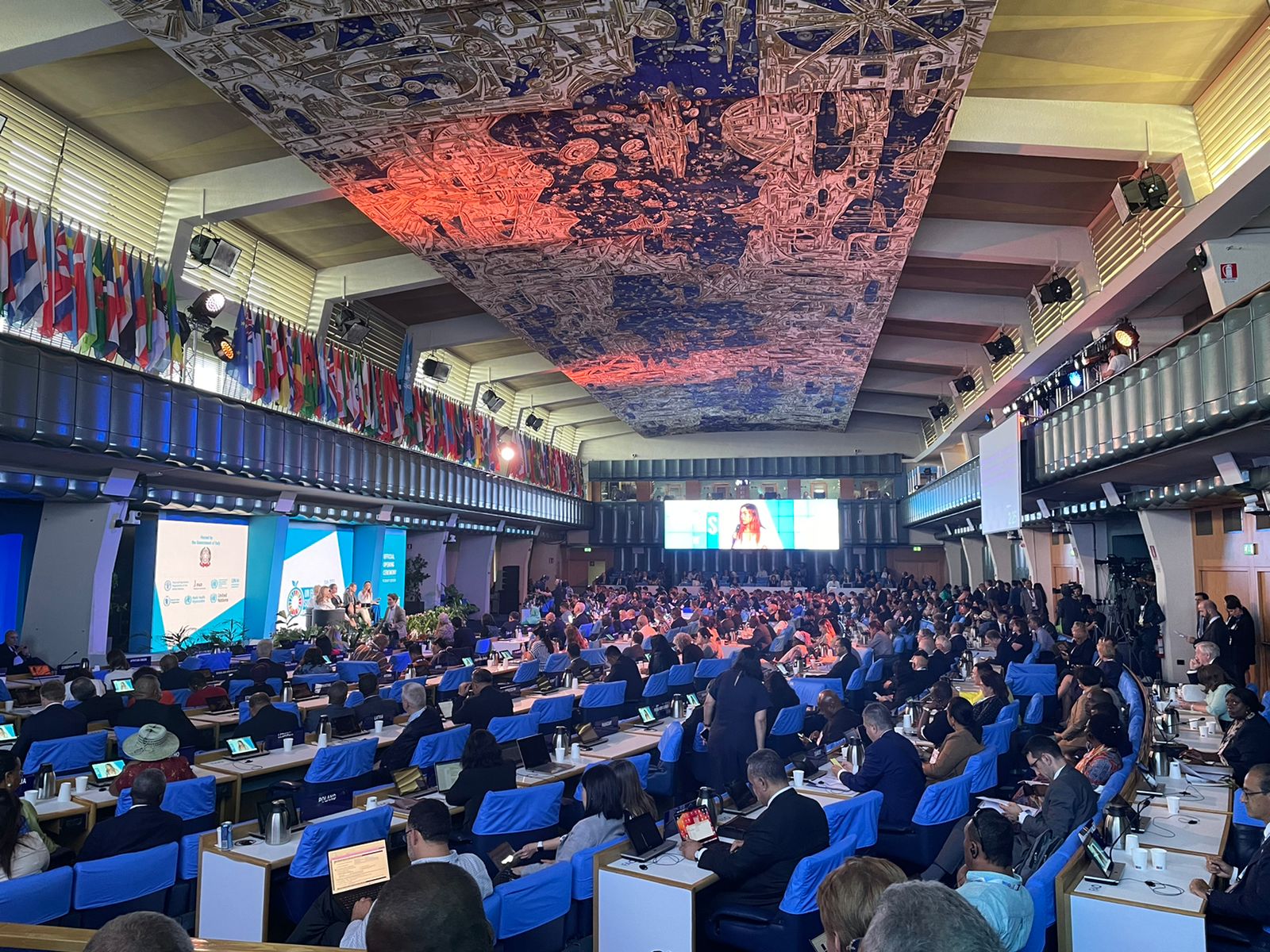UN Food Systems Summit+2 Wraps Up with Commitments to Fight Climate Change and Reverse Biodiversity Loss
August 8, 2023

The UN Food Systems Summit+2 (FSS+2), convened 2 years after the 2021 Food Systems Summit in Rome, has concluded with an urgent Call to Action to accelerate food systems transformation. The momentum will continue and strengthen as food systems take an increasingly significant place in global efforts to combat climate change and biodiversity loss.
Taking place against a background of food insecurity for 258 million people in 58 countries, the Summit highlighted that agricultural households make up two-thirds of people living in extreme poverty, and food systems are responsible for 28% of greenhouse gas emissions and as much as 80% of biodiversity loss.
The ‘’FSS+2’’ Stock Take Report shows that 150 countries have identified what is essential and urgently needed right now. Antonio Guterres, UN Secretary General identified three core messages to make food systems work for people and planet in his Call to Action in Rome:
- The highest level of ambition for food systems that combine the right to food with delivering the SDGs for everyone.
- There is tangible progress albeit much more to be done.
- We need concerted and urgent action to achieve the potential of food systems.
The Secretary General called for food systems strategies to be incorporated into all national policies for sustainable development and food systems governance that engages all sectors and stakeholders for a whole of society approach. Countries must also align the implementation of their national food systems transformation pathways with the continuous updates of National Determined Contributions (NDCs) and national adaptation plans (NAPs) for climate action, he said. As a priority, this should include the adaptation of food systems to climate change and ecosystem service losses, and investments in building the resilience of agricultural systems and reducing the vulnerability of food producers who depend on these natural resources. We must turbocharge actions that will improve the lives of many millions of people, especially women and youth, he said.
UNDP’s Food and Agricultural Commodity Systems (FACS) team is closely involved with this work through the joint UNDP/FAO Food Systems Country Support Programme. UNDP FACS Global Head Andrew Bovarnick hosted a Summit Side Event with the Netherlands Food Partnership, UNEP, FAO, GAIN and Foresight4Food on “Multistakeholder collaboration for food systems transformation: from concepts to action”.
Focusing on the experience of Kenya, Nigeria, South Sudan, Switzerland and Vietnam, the audience heard from Augustino Attilio from the Ministry of Agriculture and Food Security in South Sudan that “strong governance for food systems transformation is key” while Joyce Akpata from the GAIN Alliance in Nigeria said “Thanks to the involvement of non-governmental players, we saw significant progress. We need to change our systems through a collaborative approach”.
UNDP’s Andrew Bovarnick commented that the panelists had “demonstrated the power of linking national to local”. Multistakeholder collaboration – a key UNDP FACS contribution through its Effective Collaborative Action methodology – must be multi-geography as well as multi-sectoral.
As the Summit drew to a close, the power of food systems transformation for climate action was highlighted with the announcement that the COP28 Presidency and the UN Food Systems Coordination Hub are joining forces to elevate the role of food systems for achieving the SDGs and the Paris 2015 climate targets.
Food systems, whose role as contributors to climate and biodiversity goals was emphasised and started to build in Rome 2 years ago are now taking their place as a key component of the world’s most important climate conference. As the Secretary General warns of the era of global warming giving way to global boiling, the urgency of his Call to Action could not be greater.

 Locations
Locations



